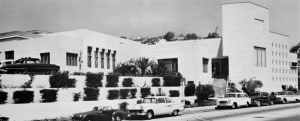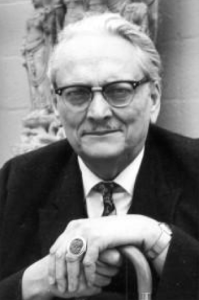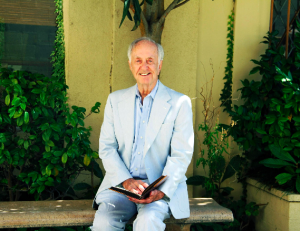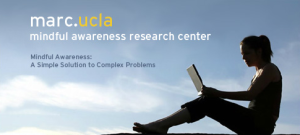Edgar Cayce (1877–1945) founded the non-profit Association for Research and Enlightenment (A.R.E.) in 1931, to explore spirituality, holistic health, intuition, dream interpretation, psychic development, reincarnation, and ancient mysteries—all subjects that frequently came up in the more than 14,000 documented psychic readings given by Cayce. The Mission of the A.R.E. coque iphone 8 is to help people transform their lives for the better, through research, education, and application of core concepts found in the Edgar Cayce readings and kindred materials that seek to manifest the love of God and all people and promote the purposefulness of life, the oneness of God, the spiritual nature of humankind, and the connection of body, mind, and spirit. With an international headquarters in Virginia Beach, Va., a regional headquarters in Houston, regional representatives throughout the U.S., Edgar Cayce Centers in 37 countries, and individual members in more than 70 countries, the A.R.E. community is a global network of individuals. A.R.E. coque iphone en ligne conferences, international tours, camps for children and adults, regional activities, and study groups allow like-minded people to gather for educational and fellowship opportunities worldwide. coque iphone outlet A.R.E. offers membership benefits and services that include a quarterly body-mind-spirit member magazine, Venture Inward; a member newsletter covering the topics of ancient mysteries, personal spirituality, and holistic health; and access to the entire set of readings in an exclusive online database. coque iphone pas cher A.R.E.’s publishing arm, A.R.E. Press, began publishing books in 1931, and has since branched out into DVDs, CDs, ebooks, and digital media. In 2009, the organization launched a second imprint, 4th Dimension Press, in order to offer additional like-minded materials. Individuals can purchase A.R.E. Press/4th Dimension Press products in nearly any bookstore or online at ARECatalog.com. Edgar Cayce’s A.R.E. coque iphone also maintains an affiliation with Atlantic University, which offers continuing education classes and a master’s degree program in Transpersonal Studies; the Cayce/Reilly® School of Massage, a leader in holistic education, wellness, and healthcare; and maintains an onsite Health Center & Spa at its Virginia Beach headquarters, where many of the health readings remedies are offered along with massage therapy.
Research
Psychic Exploration: A Challenge for Science
Ed. Note: Shortly after founding the Institute of Noetic Sciences, Edgar Mitchell conceived and collaboratively developed what he described as “an authoritative encyclopedic volume of psychic research.” It was a groundbreaking book, and in honor of IONS’ upcoming fortieth anniversary, it was recently republished with a new foreword by IONS’ president Marilyn Schlitz and Senior Scientist Dean Radin. What in some ways is most striking about the book is Dr. Mitchell’s introduction, abridged here. His astute insights into the state of humanity’s affairs and his visionary and passionate call for how to take our species to the next level of its evolution are no less vital today than they were back then.
In February 1971, I had the privilege of walking on the moon as a member of the Apollo 14 lunar expedition. During the voyage I made a test in extrasensory perception (ESP), attempting to send information telepathically to four receivers on Earth. Since then, people have asked me why an astronaut would take such an intense interest in a subject as ridiculed and unacceptable in respectable scientific circles as psychic research.
It is a fair question. The answer is partly implied by the title of this book: psychic research presents a challenge that science can no longer avoid. But the title is also somewhat misleading. My real interest is – and has been for many years – to understand the nature of consciousness and the relationship of body to mind. Psychic research is one facet of this larger whole. Therefore, it might be said that I have simply gone from outer space to inner space.
The study of mind and consciousness is called noetics. The term comes from the Greek root word nous,meaning “mind.” As popularly used, noetic refers to purely intellectual apprehension. But Plato spoke of noetic knowledge as the highest form of knowing – a direct cognition or apprehension of the eternal truths that surpasses the normal discursive processes of logical, intellectual reasoning. The word science, of course, originally meant “knowing” but has come to mean a type of knowing derived from use of the objective, rational faculties of mind. But psychic abilities such as telepathy are another type of knowing – a subjective knowing, a nonrational, cognitive process largely overlooked by the scientific world. Consciousness appears to be the central, unifying concept behind these different aspects of mind.
The topic of consciousness is as vast as the cosmos and as close to us as sleep. Noetics is the discipline that is arising from this confluence of outer- and inner-space research. It is the ultimate frontier in man’s attempt to understand the nature of the universe and himself.
Inner vs. Outer: A Time for Reconciliation
If we review the history of mankind’s attempt to perceive, cognize, and interpret his environment, we find that in the last four centuries, as a result of the growth of scientific methodology, a formalized dichotomy has arisen between proponents of the two modes of knowing: objective observation (followed by deductive reasoning) and direct cognitive processes. These opposing modes of perception are crudely epitomized as science versus religion, reason versus intuition, rationality versus nonrationality, objective knowledge versus subjective experience, and so forth. Only in relatively recent years have scholars of each persuasion actively and vehemently denied the validity of the other process. In prescientific times, scholars – whether they agreed upon their conclusions or not – at least recognized the validity of both external and internal observation. (We must quickly add that the truly great teachers of modern times have always acknowledged this dual process.)
Thus, although I am identifying consciousness as the ultimate frontier in man’s attempt to gain knowledge, it is by no means a new frontier because throughout history people have sought to resolve the differences between their objective methods and their subjective experience – between outer and inner. The study of mind and consciousness is the common ground for this effort. The living system that we call man is a holistic phenomenon that exhibits both modes of knowing.
Perhaps after 350 years of divisiveness between science and religion we are on the threshold of a new era of knowledge and cooperation. It should be obvious that objective observation and reason do not by themselves produce a satisfactory ethic for living – neither for the individual nor for social systems. Facts become divorced from values, and action from need.
On the other hand, intuition and inspiration do not by themselves produce the agreement society needs to bring about order, structure, and survival in the material world. In this case, observation frequently becomes subject to individual interpretation according to the covert biases of the individual.
The antagonism between the objective and subjective modes of knowledge can be clearly illustrated. In 1600 Giordano Bruno was burned at the stake by theologians for asserting that the earth was not the center of the solar system and that there were other solar systems with living beings in them. In 1972 the American Academy of Science asserted that science and religion are “mutually exclusive realms of thought” and therefore the Genesis theory of creation should be kept out of science textbooks. The roles of science and religion are reversed in the modern example, but the same close-minded dogmatism is operating to limit inquiry through sanctimonious denial of other viewpoints.
Research over the last fifty years by little-known but forward-looking thinkers has shown there is a vast creative potential in the human mind that is as yet almost totally unrecognized by science. Nonrational cognitive processes have so far eluded scientific description. However, this potential has been previously known and described by a few ancient sages and enlightened religious teachers, using veiled prescientific language to express what they discovered through subjective, intuitive, experiential means. We are, in my opinion, on the threshold of rediscovering and redefining those concepts and insights through the objective, rational, experimental efforts of science – if dogmatism and outmoded belief structures do not prevent it. The proper direction of sophisticated instrumentation and laboratory techniques can be the means whereby the physical and metaphysical realms are shown to be different aspects of the same reality. If this is demonstrated, it would be ironic, but appropriate, that so-called godless technology and materialistic science should lead to the rediscovery of the essential unity of science and religion.
Noetics recognizes all this. Noetics is the research frontier where the convergence of objectivity and subjectivity, of reason and intuition, is occurring most rapidly. In the study of consciousness, the techniques and technology of science are being combined with the higher insights of mind from both East and West to provide a new methodology for scholarly inquiry. For it is quite clear that reason alone is not sufficient for total understanding of ourselves. As Michael Polanyi, the eminent philosopher of science, points out in his book Personal Knowledge (Routledge and Kegan Paul, 1958), scientific discoveries do not always follow in a sequence of perfectly logical deductions. Instead, many discoveries involve intuitions and hunches on the part of the scientist in a manner that cannot be completely explained.
The Limits of Pragmatism
When I went to the moon, I was as pragmatic a test pilot, engineer, and scientist as any of my colleagues. More than a quarter of a century had been spent in learning the empirical approach to dealing with the universe. Many times my life has depended upon the validity of scientific principles and the reliability of the technology built upon those principles. I knew well that analytic and logical thought, using objective data, could produce a technology that would reveal new secrets of the universe by probing the reaches of space and, at the microscopic level, the structure of atoms. Prior to the lunar exploration, I became as familiar with the spacecraft and its vast support system of people and equipment as a man could be, with confidence in it all. Despite that familiarity and confidence, though, there were moments during the flight when I felt an amazed and profound respect for the rational abilities of the human intellect – that it could find ways to guide a tiny capsule of metal through a half million miles of space with such precision and accuracy. Yes, I was pragmatic because my experience had shown beyond all question that science works.
But there was another aspect to my experience during Apollo 14, and it contradicted the “pragmatic engineer” attitude. It began with the breathtaking experience of seeing planet Earth floating in the vastness of space.
The first thing that came to mind as I looked at Earth was its incredible beauty. Even the spectacular photographs do not do it justice. It was a majestic sight, a splendid blue and white jewel suspended against a velvet black sky. How peacefully, how harmoniously, how marvelously it seemed to fit into the evolutionary pattern by which the universe is maintained. In a peak experience, the presence of divinity became almost palpable, and I knew that life in the universe was not just an accident based on random processes. This knowledge came to me directly – noetically. It was not a matter of discursive reasoning or logical abstraction. It was an experiential cognition. It was knowledge gained through private subjective awareness, but it was – and still is – every bit as real as the objective data upon which, say, the navigational program or the communications system was based. Clearly, the universe had meaning and direction. It was not perceptible by the sensory organs, but it was there nevertheless – an unseen dimension behind the visible creation that gives it an intelligent design and that gives life purpose.
Next I thought of our planet’s life-supporting character. That little globe of water, clouds, and land no bigger than my thumb was home, the haven our spacecraft would seek at the end of our voyage. Buckminster Fuller’s description of the planet as “Spaceship Earth” seemed eminently fitting.
Then my thoughts turned to daily life on the planet. With that, my sense of wonderment gradually turned into something close to anguish because I realized that at the very moment when I was so privileged to view the planet from 240,000 miles in space, people of Earth were fighting wars; committing murder and other crimes; lying, cheating, and struggling for power and status; abusing the environment by polluting the water and air; wasting natural resources and ravaging the land; acting out of lust and greed; and hurting others through intolerance, bigotry, prejudice, and all the things that add up to man’s inhumanity to man. It seemed as though man were totally unconscious of his individual role in – and individual responsibility for – the future of life on the planet.
It was also painfully apparent that the millions of people suffering in conditions of poverty, ill health, misery, fear, and near slavery were in that condition from economic exploitation, political domination, religious and ethnic persecution, and a hundred other demons that spring from the human ego. Science, for all its technological feats, had not – more likely could not – deal with these problems stemming from man’s self-centeredness.
The magnitude of the overall problem seemed staggering. Our condition seemed to be one of deepening crises on an unprecedented scale, crises that were mounting faster than we could solve them. There appeared to be the immediate possibility that warfare might destroy vast segments of civilization with one searing burst of atomic fury. Only a little further off appeared the possibility of intolerable levels of polluted air and of undrinkable water. A more remote but no less real likelihood was the death of large portions of the population from starvation, abetted by improper resources management by an exploding population.
How had the world come to such a critical situation – and why? Even more important, what could be done to correct it? How could we restore the necessary harmonious relationship between the environment and ourselves? How could a nuclear Armageddon be avoided? How could life be made livable? How could our potential for a peaceful, creative, fulfilling society be realized? How could the highest development of our objective rationality, epitomized by science, be wedded to the highest development of our subjective intuition, epitomized by religion?
These thoughts and questions stayed with me through the mission, splashdown, and parades. They stayed long afterward to the point of haunting me with an overwhelming awareness of how limited a view man has of his own life and the planet’s. Sometimes at night I would lie awake for hours struggling with this enigma, trying to understand it and see it in a sensible perspective. How could human beings, the most intelligent creature on earth, be so utterly stupid and shortsighted as to put themselves in a position of possible global extinction? How had insight become divorced from instinct? Was it possible to find a workable solution?
The View from Above, and from Within
Only when man sees his fundamental unity with the processes of nature and the functioning of the universe – as I so vividly saw it from the Apollo spacecraft – will the old ways of thinking and behaving disappear. Only when man moves from his ego-centered self-image to a new image of universal human will the perennial problems that plague us be susceptible of resolution. Humanity must rise from man to mankind, from the personal to the transpersonal, from self-consciousness to cosmic consciousness. Humanity’s multiple problems resolve themselves into one fundamental problem: how to change consciousness. How can we raise our awareness to a higher level – a level that will restore the unity of human, the planet, and the universe?
For me, seeing our planet from space was an event with some of the qualities traditionally ascribed to religious experience. It triggered a deep insight into the nature of existence – the sort of insight that radically changes the inner person. My thinking – indeed, my consciousness – was altered profoundly. I came to feel a moral responsibility to pass on the transformative experience of seeing Earth from the larger perspective. But further, the rational part in me had to recognize the validity ofthe nonrational cognitive process.
Obviously we cannot send everyone to the moon in the near future. But we can provide information and experiences of another sort that will serve the same purpose and provide the same perspective. Moreover, we can do it in a way that brings objective reason closer to subjective intuition and thereby help to lessen the unfortunate gulf between these two modes of knowing. We can do this because inner- and outer-space research are converging.
Now is the time for us to begin building a single whole of humanity. Now is the time to develop our nonrational abilities into a “subjective technology,” which will begin the wedding of science and religion, reason and intuition, the physical and the spiritual. This union of head and heart, insight and instinct, will ensure that as science comes to comprehend the nonmaterial aspect of reality as well as it knows the material – that is, as science approaches omniscience – our knowledge will become wisdom, our love of power will become the power of love, and the universal human of cosmic consciousness can then emerge.
This material was reproduced with permission by Cosimo Books, an imprint of Cosimo, Inc., from Psychic Exploration: A Challenge for Science by Dr. Edgar D. Mitchell (9781616405472), ©1974 by Edgar D. Mitchell & Associates. Cosimo books are available at online retailers and cosimobooks.com
http://noetic.org/noetic/issue-eleven-june/psychic-exploration/
Philosophical Research Society
The Philosophical Research Society is a nonprofit organization founded in 1934 for the purpose of providing resources for the study and research of the world’s wisdom literature. Rejecting doctrinal, political, or ecclesiastical investments, it provides a learning environment sheltered from any intention to coerce or convert. The goal of this institution is to enable the individual to develop a mature world view and philosophy of life in association with a diverse and stimulating community of inquiry, dedicated to understanding and appreciating their unique possibilities in the unfolding universal pattern.

One Word: Philosophy
At PRS, we start with a single word: Philosophy.
This one word comes from the ancient Greeks for whom phileo meant “love” and sophia meant “wisdom.”
As elementary and apparent as it may seem, this one word, this “love of wisdom,” raises two profound questions: what is love, and what is wisdom? With such inquiry, we are instantly confronted with the challenge of two great mysteries. The Greeks may have often spoken in diverse ways about the meaning of philosophy: greedy for wisdom, lusting after wisdom, pursuing wisdom as the way of personal glory… Yet much more did they insist in the loving of wisdom. In so doing, the term “love” meant giving one’s affectionate attention and unselfconscious care in the pursuit of wisdom.
Wisdom is insight into the nature of things, a fundamental acquaintance with Reality. All of the great insights of humankind left for us to study, which history has managed to preserve, are the priceless inheritance of every person. It is the clear goal of Philosophical Research Society and the University of Philosophical Research to provide global “lovers of wisdom” access to that treasure which is their birthright.
Thus this one word reveals our purpose and shapes our method. From this understanding we carefully draw our principles. They guide the administration of our organization:
● Inclusiveness — We look to include wisdom from its every source and to make it accessible to all who value it
● Non-Advocacy — We are not partisan nor do we endorse any one particular tradition or person.
● Freedom — We consider the quiet urgings of each heart to be the proper personal guide in the process of self-discovery. Each person is urged freely to compare and reference their natural knowing with the finest expressions of humanity’s deepest insights. We expect this process to create resonance which best leads each person on his or her unique path of learning and discovery.
● Quality Resources — To the greatest extent possible, we strive to have all of our resources distinguished by carefully referenced scholarship supported by direct experience and field work. We seek to continually refine and update our offerings as discoveries come to light and errors are uncovered.
● Community — Stimulating and good spirited interaction reflect the fact that we are a community of discovery, not just isolated individuals. Ours is the path of ecumenism and a journey of shared meanings. We are part of a movement toward World Culture in which all wisdom traditions and the highest expressions of our spiritual heritage are honored. We yearn for a planetary citizenship in which social justice and compassion aim toward a transformation of humankind.
● Education – PRS is dedicated to being a place for learning and for “drawing out” (as in the original sense of “educate”) the wisdom that lies within all traditions and all human beings.
Our Founder
 Manly P. Hall, the Philosophical Research Society’s first president, was a seeker and lover of wisdom, the very definition of a philosopher. He had the courage and the raw intellectual energy to look for wisdom in places most men had long since forgotten about, or never knew existed. He lived in an era when most Americans did not look toward other cultures and traditions, without looking down. Yet during such times, Manly P. Hall spoke, and wrote extensively, of the wisdom found in all ancient traditions. In an age when serious study of “other religions” was anathema to most, he found deep crosscultural threads and revealed many interconnected roots of modern religious expression. Neither Guru nor Saint, he made no claim of perfection, far from it; but his work is exceedingly rare in its grand scope, detail and synthesis. He embraced the wisdom of every tradition, and, with a fluid command of their obscure and complex contents, worked to express their unifying truths. His legacy is over 200 printed volumes, 8000 lectures, a hand picked library which is one of the finest in the field, and a Society and University that continue in his spirit of universal exploration and learning.
Manly P. Hall, the Philosophical Research Society’s first president, was a seeker and lover of wisdom, the very definition of a philosopher. He had the courage and the raw intellectual energy to look for wisdom in places most men had long since forgotten about, or never knew existed. He lived in an era when most Americans did not look toward other cultures and traditions, without looking down. Yet during such times, Manly P. Hall spoke, and wrote extensively, of the wisdom found in all ancient traditions. In an age when serious study of “other religions” was anathema to most, he found deep crosscultural threads and revealed many interconnected roots of modern religious expression. Neither Guru nor Saint, he made no claim of perfection, far from it; but his work is exceedingly rare in its grand scope, detail and synthesis. He embraced the wisdom of every tradition, and, with a fluid command of their obscure and complex contents, worked to express their unifying truths. His legacy is over 200 printed volumes, 8000 lectures, a hand picked library which is one of the finest in the field, and a Society and University that continue in his spirit of universal exploration and learning.
Our President
 The President of PRS is Obadiah S. Harris. He combines his skills as a community educator and administrator with study of the world’s wisdom traditions to continue the legacy and pursuits of the PRS into the present day. Dr. Harris received his Ph.D. in Educational Administration from the University of Michigan as a Stewart Mott Foundation Fellow. His background includes long service as Associate Professor and Director of the Center for Community Education at New Mexico State University, and as Associate Professor and Director of the Regional Center for Community Education at Arizona State University. Dr. Harris’s study and practice of the great Eastern and Western Wisdom Traditions has helped shape and direct his life.
The President of PRS is Obadiah S. Harris. He combines his skills as a community educator and administrator with study of the world’s wisdom traditions to continue the legacy and pursuits of the PRS into the present day. Dr. Harris received his Ph.D. in Educational Administration from the University of Michigan as a Stewart Mott Foundation Fellow. His background includes long service as Associate Professor and Director of the Center for Community Education at New Mexico State University, and as Associate Professor and Director of the Regional Center for Community Education at Arizona State University. Dr. Harris’s study and practice of the great Eastern and Western Wisdom Traditions has helped shape and direct his life.
See more at: http://prs.org/wpcms/#sthash.7BzoVMHD.dpuf
UCLA Semel Inst. – Meditation
 Mindfulness Awareness Research Center’s (MARC) mission is to foster mindful awareness through education and research to promote well-being and more compassionate society. The institute offers classes and workshops to the general public, teaching the skills of mindfulness across the lifespan. These classes are offered at all levels including those for the absolute beginner to workshops and retreats for advanced practitioners. MARC also offers a one year certification training for Mindfulness teachers. Of special interest is the variety of classes offered to support mental health professionals
Mindfulness Awareness Research Center’s (MARC) mission is to foster mindful awareness through education and research to promote well-being and more compassionate society. The institute offers classes and workshops to the general public, teaching the skills of mindfulness across the lifespan. These classes are offered at all levels including those for the absolute beginner to workshops and retreats for advanced practitioners. MARC also offers a one year certification training for Mindfulness teachers. Of special interest is the variety of classes offered to support mental health professionals
Esalen Institute – Meditation

Our Story
Esalen. The word itself summons up tantalizing visions of adventure, of unexplored frontiers, of human possibilities yet to be realized. There is the wonder of the place itself, 120 acres of fertile land carved out between mountain and ocean, blessed by a cascading canyon stream and hot mineral springs gushing out of a seaside cliff. There is the delicate and subtle Big Sur air of a late afternoon in May, the midnight mist of July, and the drenching February rain. There are October nights so clear the Milky Way can light your walk along the darkened garden path. And always there is the sound of the sea.
And then there are the people — the people who live there and love the land, and the 750,000 more who have come from all over the world to participate in Esalen’s 50-year-long Olympics of the mind, heart, body, spirit, and community, committing themselves not so much to “stronger, faster, higher” as to deeper, richer, more enduring in the fellowship of other seekers.
They come for the intellectual freedom to consider systems of thought and feeling that lie beyond the constraints of societal norms. They come to re-discover ancient wisdoms in the rhythms and tides of the body, and poetry in the pulsing of life itself. They come to rediscover the miracle of self-aware consciousness. Often they come away inspired by a fierce desire to learn and keep on learning through all of life, and beyond.
Esalen is a place with a global reach. In the words of Thomas Wolfe about America, It is a place where miracles not only happen, but where they happen all the time.